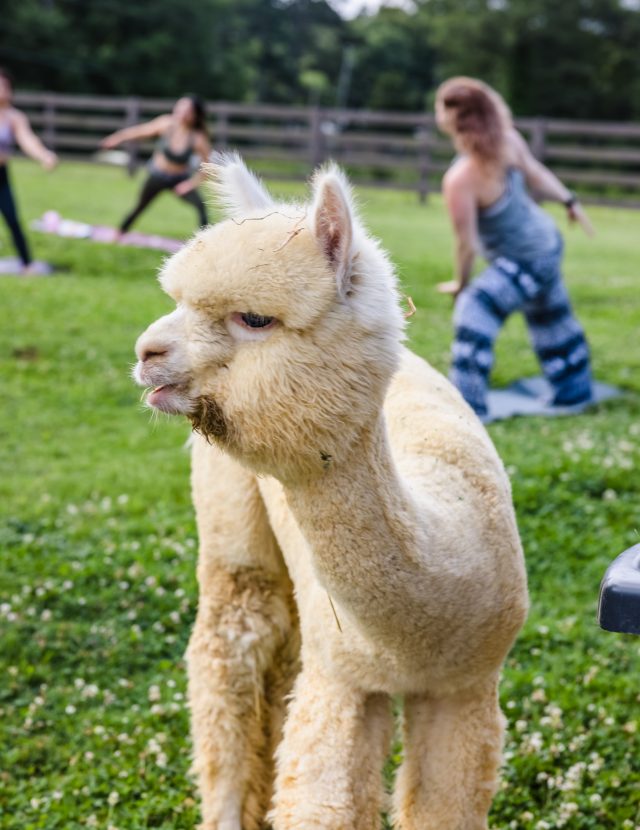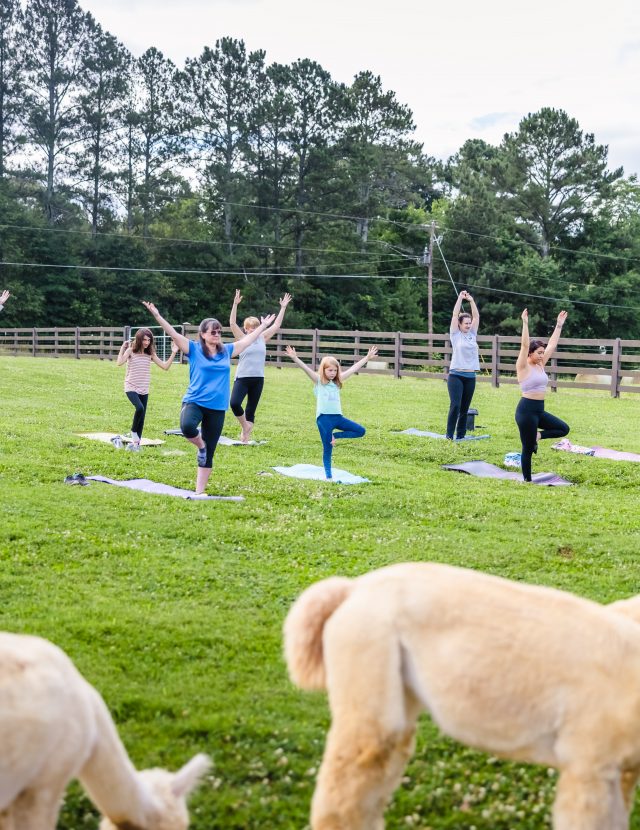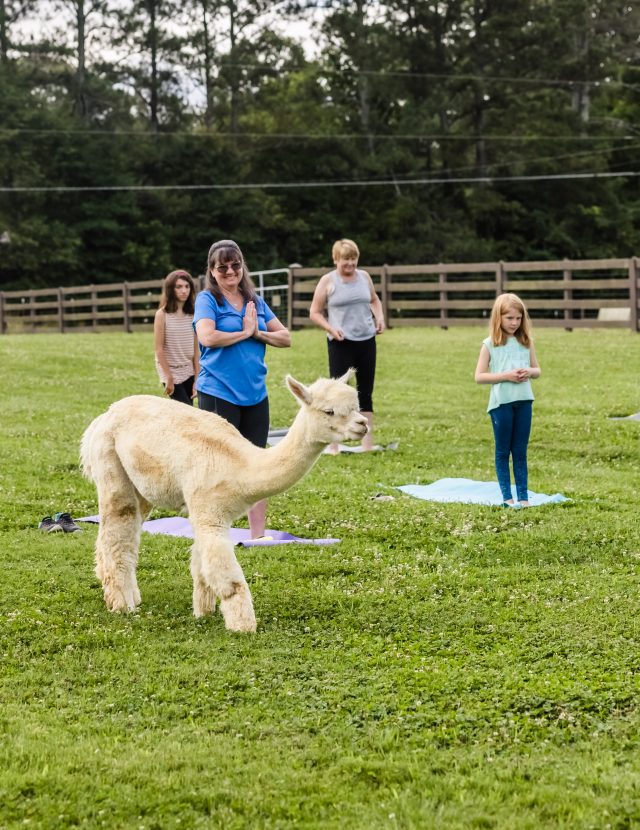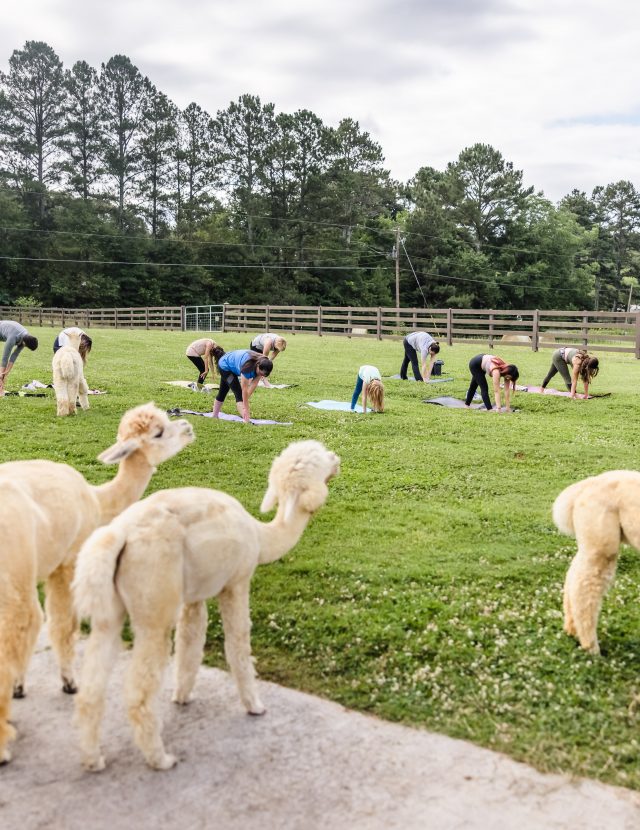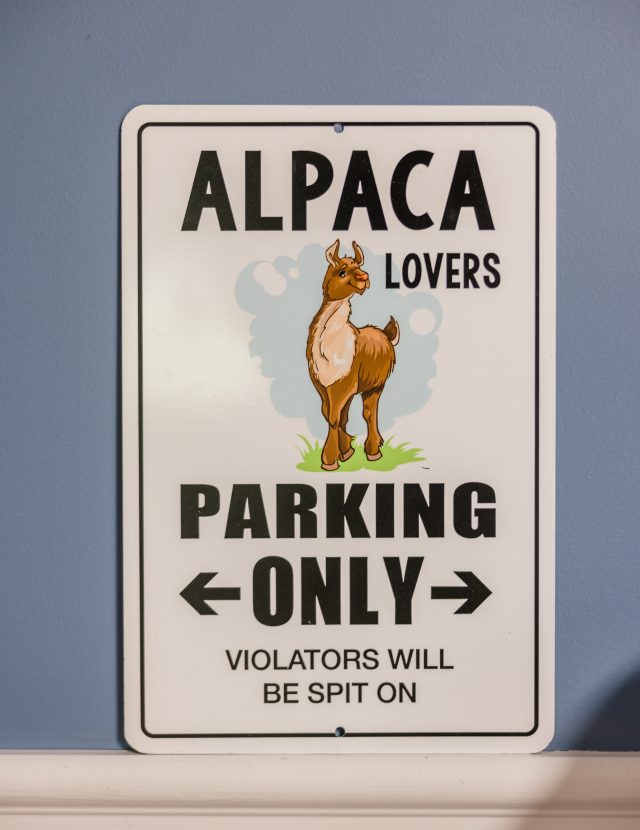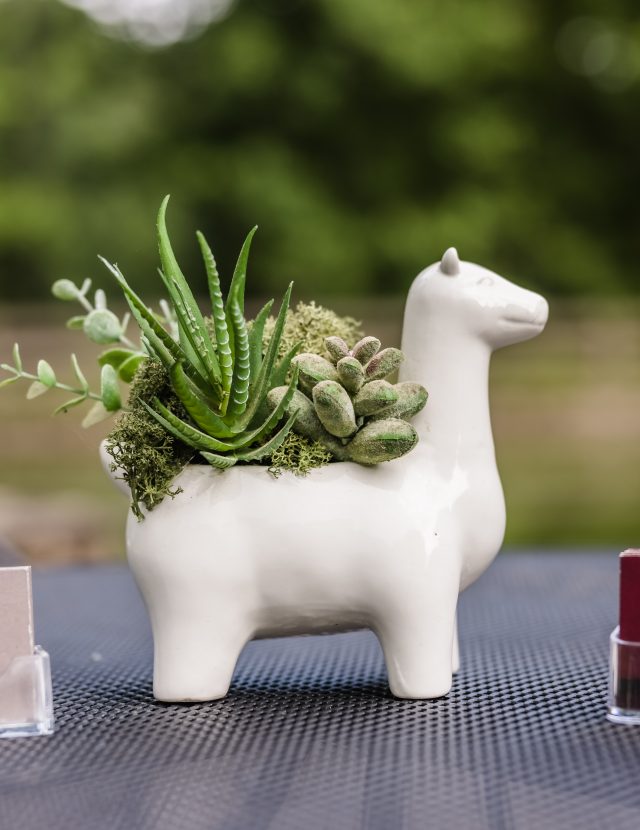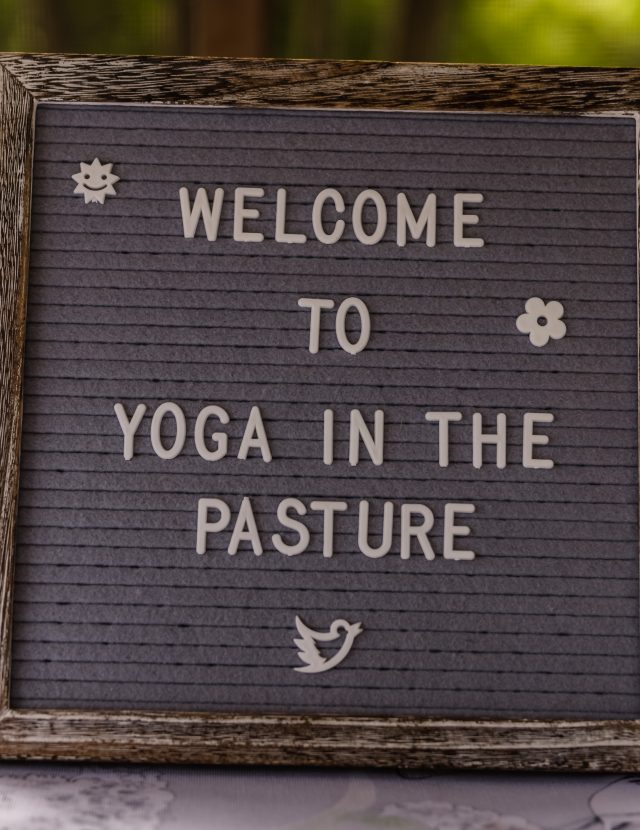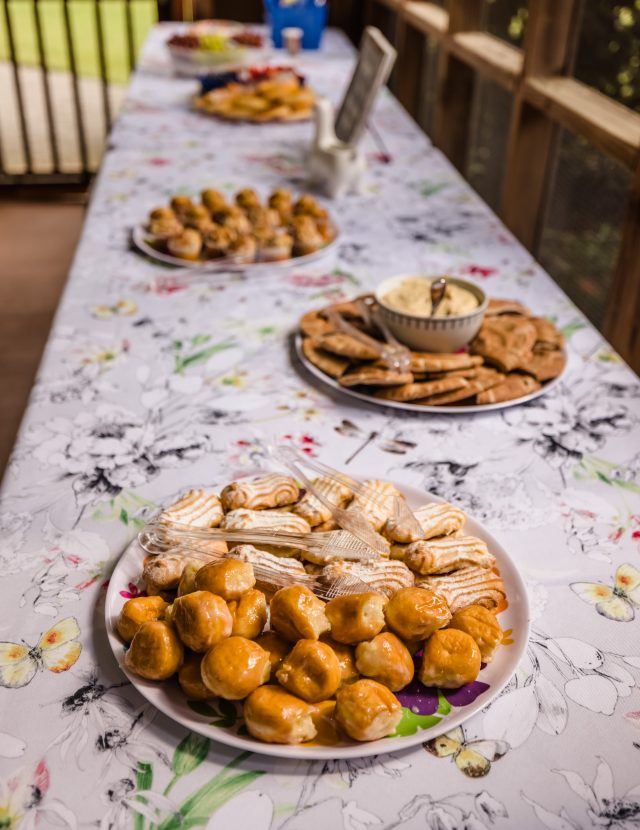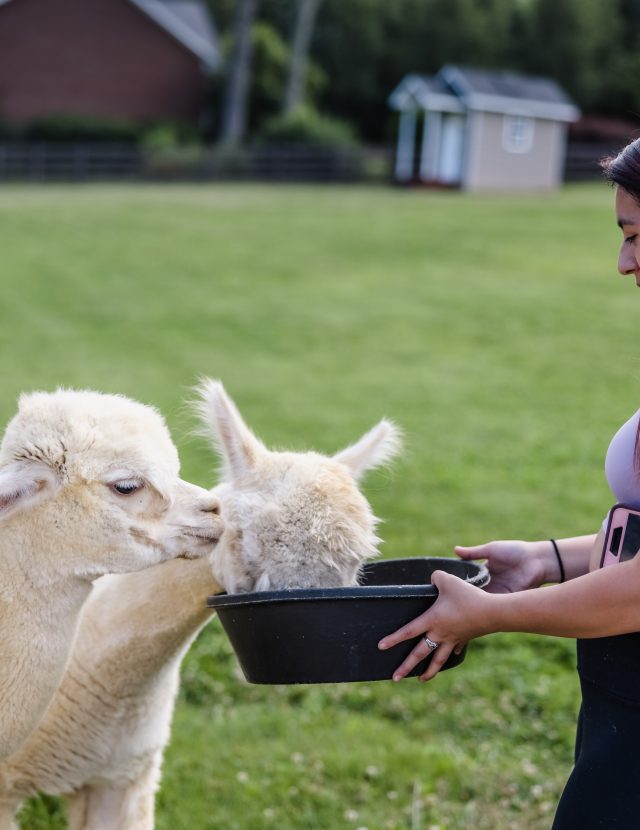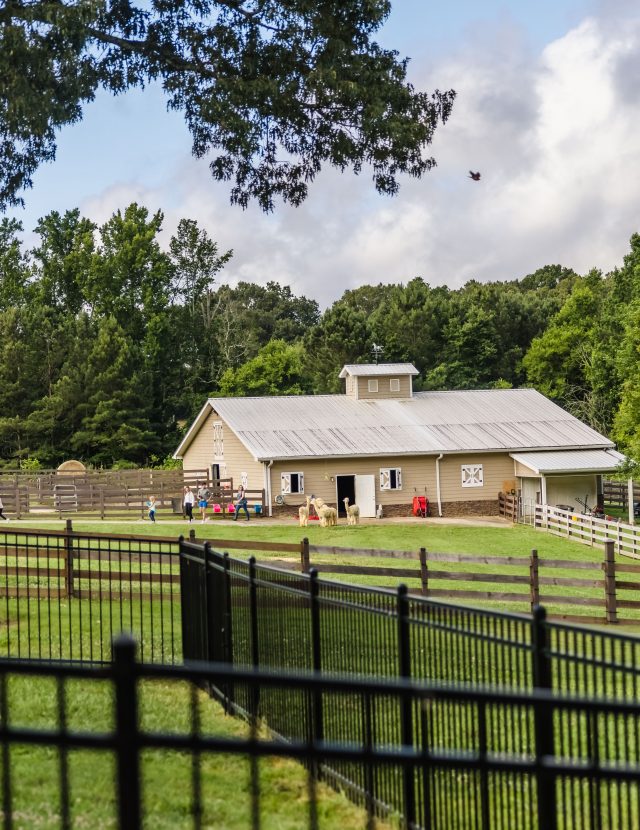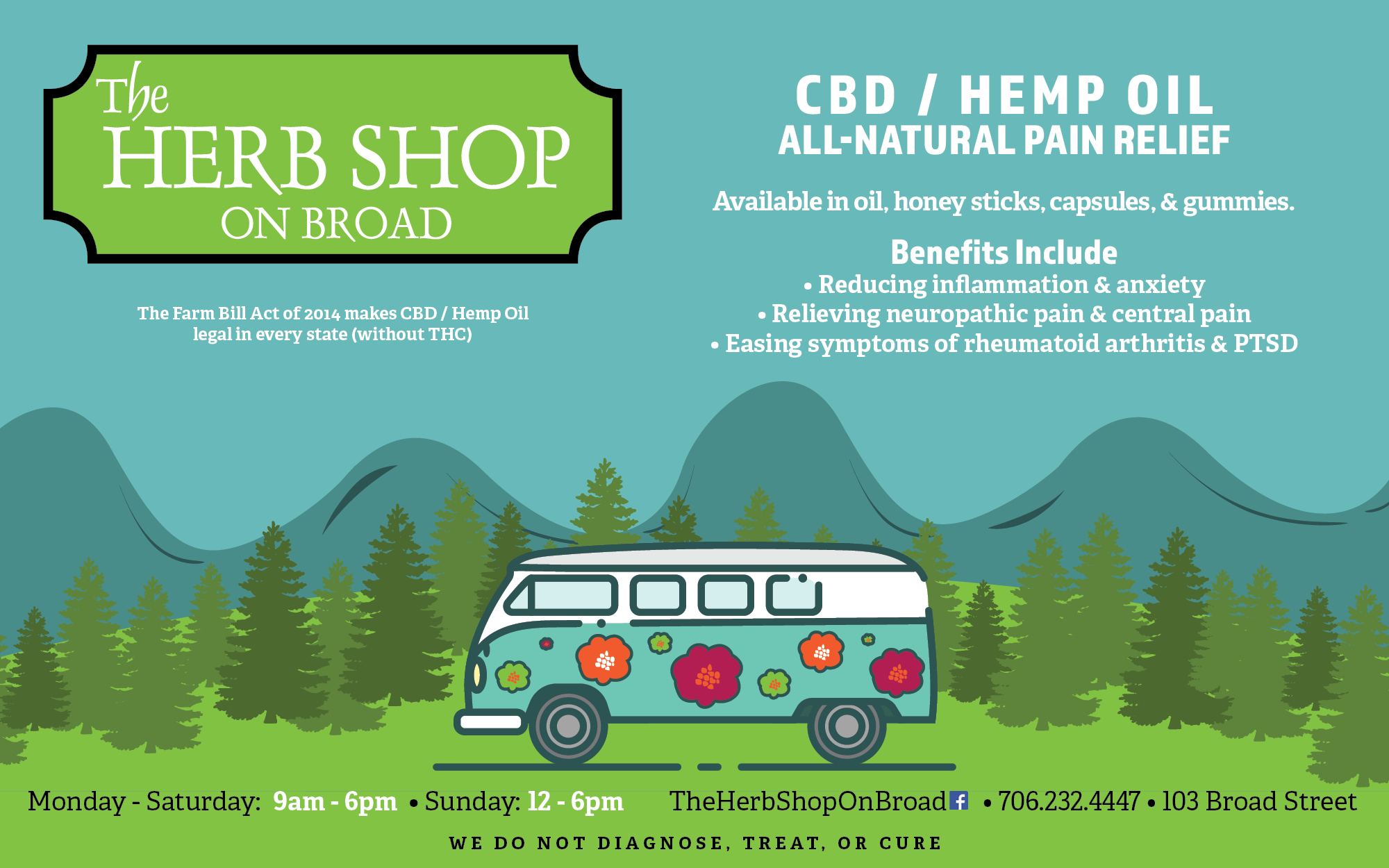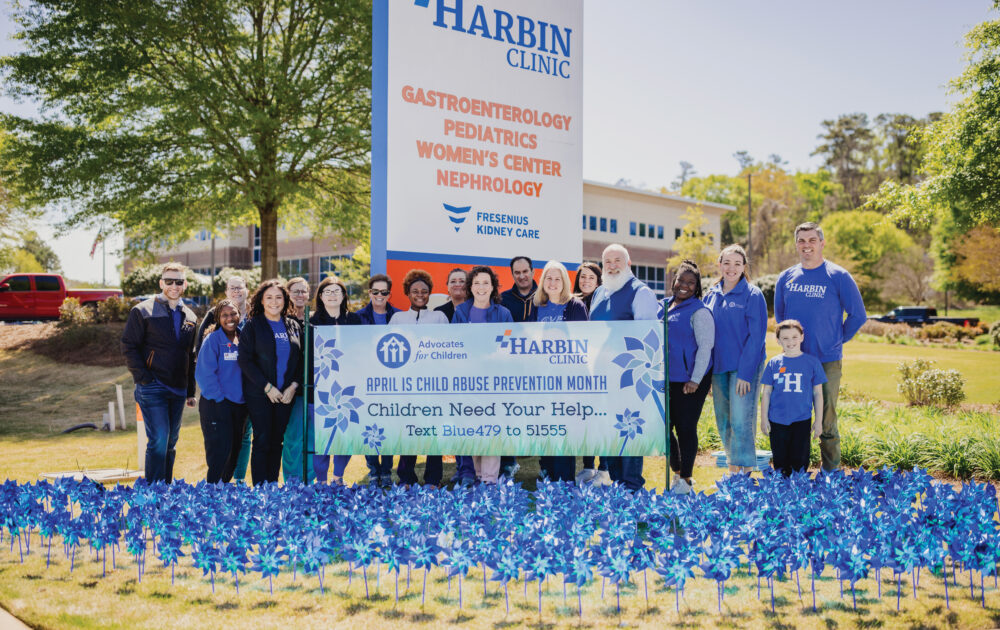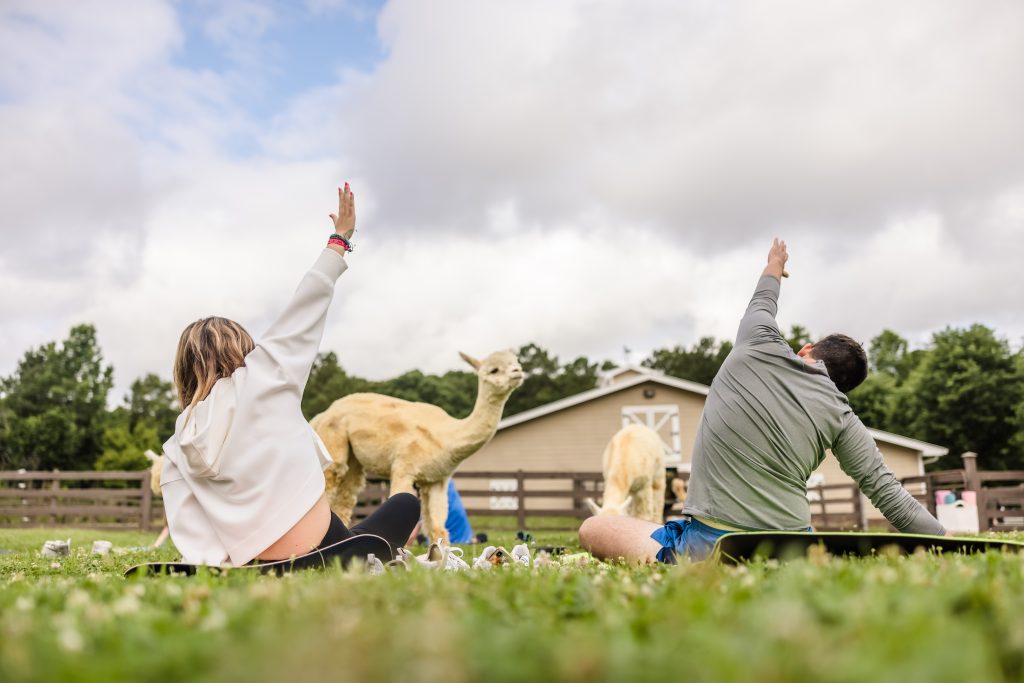
Photos Andy Calvert
A visitor could be forgiven for staring. After all, it is an unusual sight in the outlying areas of Cartersville, Georgia: a group of people sitting in the middle of a farm pasture, holding serene yoga poses, while a herd of wooly alpacas mill about and crane their long necks to see what is going on. This is Sugar Valley Alpacas, owned by Stuart and Doneen Mills. Alpaca yoga is one of the farm’s regular events, led by Mariah Bridges Varner of Mariah Sunshine Yoga. With Varner’s creative background in fine arts, dancing, and singing, something as eclectic as alpaca yoga does not seem like such a stretch (pun intended).
IT ALL STARTED WITH A PUPPY
Before moving to Cartersville, the Mills lived busy lives in Atlanta. When several personal tragedies hit their family in quick succession, they began to rethink their priorities. Doneen began having increasing difficulties concentrating on her PhD studies, and she spent a lot of time staring at the wall, thinking, grieving.
Then they wound up with a puppy, a Labrador Retriever/Staffordshire Terrier mix named Karma, who triggered a chain of events that changed everything. Doneen says, “Karma made me get out of bed. She helped me laugh again. I started getting exercise by taking her outside to play and walk.” Soon after, a friend gave the Mills a German Shepherd puppy, whom they named Khal Doggo (yes, that is a wordplay on a name from Game of Thrones).
It was immediately apparent that the home’s postage stamp yard would not suffice for two rambunctious young dogs, so the Mills started looking beyond Atlanta’s city limits for a place with some elbow room. After finding the farm where they now live, they were disappointed to find someone else had beat them to it, so they continued their search elsewhere. Then, to their surprise and delight, the would-be buyers of the farm backed out of the purchase. The Mills made an offer, and the farm was theirs.
Stuart got a new job so he would not have to travel so much, Doneen put her PhD studies on hold, and they moved to the farm. Karma and Khal Doggo now had ample room to romp, and the Mills had the opportunity to invent a new life for themselves. After the move, other animals followed: two more dogs, Nashee and Kahlua, chickens, and a prowling clowder of barn cats.
WHY ALPACAS?
These days, the alpaca herd numbers five, with breeding plans for more. There are also upcoming plans that include goats, and maybe a llama.
The property’s previous owners lovingly designed and built the farm as a place to keep a few horses and entertain friends and family. When the Mills purchased the place, they wanted to do more with it, but at first they weren’t sure what. Doneen, who had spent the early years of her childhood on a farm in New Jersey, was accustomed to being around animals and was hoping to find something unique for their farm.
After she saw alpaca videos on the internet, she fell in love with the creatures. They knew others would too. The Mills purchased their alpacas from Good Karma Ranch, in North Carolina, who have continued as a source of help and encouragement, mentoring the couple through the challenging process of raising and caring for their herd.
Often, when farmers acquire alpacas, agritourism follows naturally. It’s a good fit. The Mills saw that no other farms were doing this anywhere close, so they jumped in. That is how they got involved in alpaca yoga, too; other farms were doing it, but none around Cartersville.
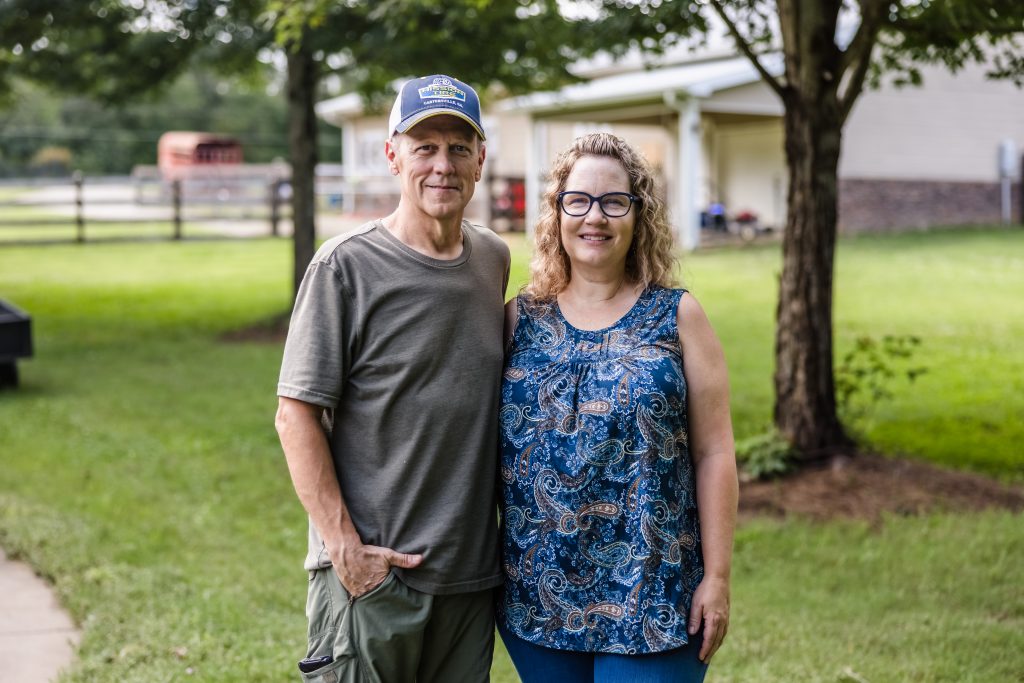
LONG DAYS AT THE HOMEPLACE
The universal tradition of every farm is the same: work, work, and more work. It is no different at Sugar Valley Alpacas. The Mills share the duties, though Stuart’s work in radar systems sometimes carries him far afield, to places such as Japan. A typical workday begins at 6 A.M. and ends at 9 P.M. (or later). There are seven acres of grass to keep mowed. The animals’ water in the barn has to be changed three or four times per day. Chickens must be fed, as do the dogs and the alpacas and the fish in the pond. Then there are the daily barn chores, three hours of them.
One of Stuart’s ongoing duties is fixing various things that get damaged around the farm, fences and such. On top of all that, there are the errands, picking up hay, feed, and other supplies. The alpacas also need monthly vaccinations, which the herd does not like but cannot do without. It is no wonder that Doneen looks forward to her coveted afternoon nap; she could not finish out the day without it. It’s a lot of work, and there are no days off. However, the Mills do have a high school student, Jaylee, who works with them on the farm. Doneen says, “I don’t know what I’m going to do when Jaylee goes off to college. She’s such a huge help!”
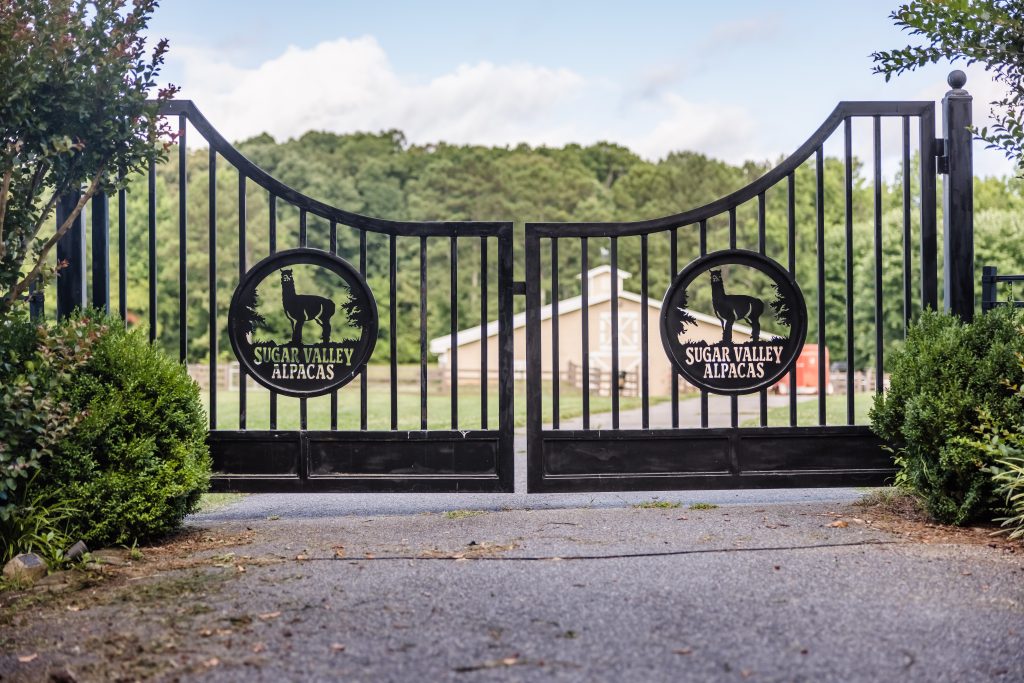
EVERY ALPACA IS AN INDIVIDUAL
Alpacas are known for their sweet, quirky dispositions. Their temperaments are different from their llama cousins. Doneen laughs when she says, “A llama is a 400-pound animal that carries a knife in its fur!” (That’s just a joke, she’s quick to point out.)
According to the Mills, their alpacas each have a unique personality. Quinn is the herd’s bossy matriarch who keeps the others in line. Doneen swears that Quinn exudes a judgmental attitude when she looks at her owners. Pearl is the farm’s official greeter, always the first to trot up to arriving guests. She’s the star of the show, the most affectionate of the herd and insatiably curious. Pearl loves watermelon, and she has a goofy running style (called pronking).
Sweet and shy, BeeBee is a bit of a teacher’s pet, attached at the hip to Quinn. BeeBee wants to do whatever the leader is doing. Lil Bit is new to the herd, but she’s settling in well and is still nursing her young cria (alpaca-speak for baby), named Bodie. Woefully outnumbered, young Bodie, who is a comic little clown, is the herd’s only male.
ALPACA ODDITIES
Those who work in the alpaca community have no shortage of funny stories and odd facts to share about these unusual animals. For instance, there is the Spit Test. This is how alpaca ranchers know if a female of their herd is pregnant or not. According to the Mills, after a pair of alpacas mate, they are separated for a week and then brought back to together.
“If the female spits at the male,” Doneen says, “that means she is pregnant.” Just to be sure, the pair is separated for another week, and then the test is done again. “If she spits at him again, it’s for sure.” Since alpacas have the peculiar ability to ovulate on demand and can become pregnant as soon as two days after giving birth, a new mother is always isolated from the herd’s male population immediately after having her little cria.
Also, one thing the Mills did not know when they first bought their herd was the animals’ habit of making a particular humming sound. Early on, as Stuart and Doneen worked in and around the barn, they heard the alpacas going ‘Hmmm’. The Mills thought it was hilarious, so they hummed back, which made the herd ‘Hmmm’ all the more. This responsive humming went on for a couple of weeks. They soon discovered, to their chagrin, that alpacas make that sound when they are anxious, so the Mills stopped humming back. It was all part of the farmers’ learning curve.
One thing that Doneen stresses about alpacas is that they are highly social creatures. “No one should ever own just one of them,” she says. “They need others of their own kind; humans and dogs are not suitable substitutes.” She goes on to explain that they can suffer from berserk llama syndrome, a condition caused by being raised alone with humans. BLS can cause alpacas to become aggressive, dangerous to people. Isolation from a herd can also give them deadly stomach ulcers. Doneen says, “They can literally die from loneliness. They have separation anxieties. They always need a herd.”
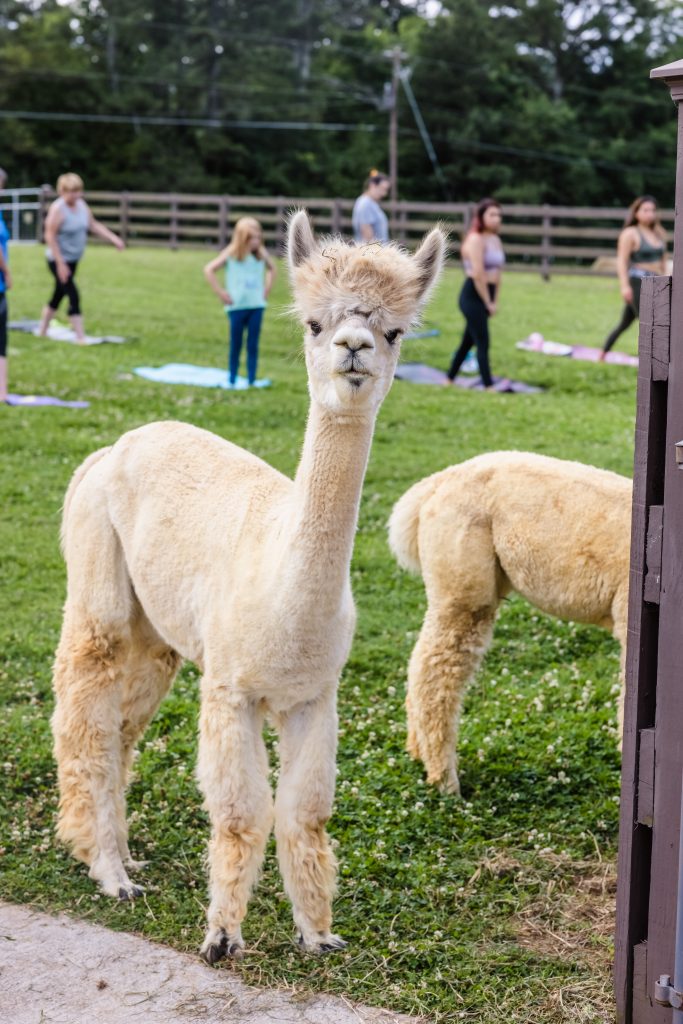
HANG AROUND AND SEE FOR YOURSELF
The best way for a visitor to truly soak in the atmosphere at Sugar Valley Alpacas is to hang around and relax. The farm has a beautiful, cozy guest cottage that is used for vacation rentals. The cottage overlooks a fishpond and is the perfect place to escape life’s stress. The farm’s website sugarvalleyalpacas.com says, “Nearby Lake Allatoona and Red Top Mountain Park offer boating, kayaking, river tubing, swimming, and hiking.” And of course, a visitor can always check the events schedule and maybe give alpaca yoga a try.
As summer approaches, farm tours (by appointment, see website) will be limited to six people per group, and only at feeding time. The alpacas are not fans of the sweltering Northwest Georgia heat and prefer the cool of the barn.
A WORTHY CAUSE
Visitors to Sugar Valley Alpacas can feel good about spending their money there. 10% of all profits go to the American Foundation for Suicide Prevention. According to the AFSP’s website, they “fund research to improve intervention, train clinicians in suicide prevention, and advocate for policy that will save lives.” Having experienced the tragedy of such a loss themselves, the Mills work to shed light on this issue.
THE JOY OF THE HERD
“Alpacas make people happy, they just do,” Doneen says. “When visitors arrive and see the alpacas for the first time, I can tell which people are going to squeal. Or scream.” Sometimes Doneen has to intercept visitors and ask them to be calm and quiet, lest they startle the alpacas. “They make people smile,” she says. “There’s something really peaceful about watching then graze. It makes people’s dopamine and serotonin levels rise, putting them in a better mood.” This makes the animals the ideal companions for outdoor yoga. They’re a very Zen species.



